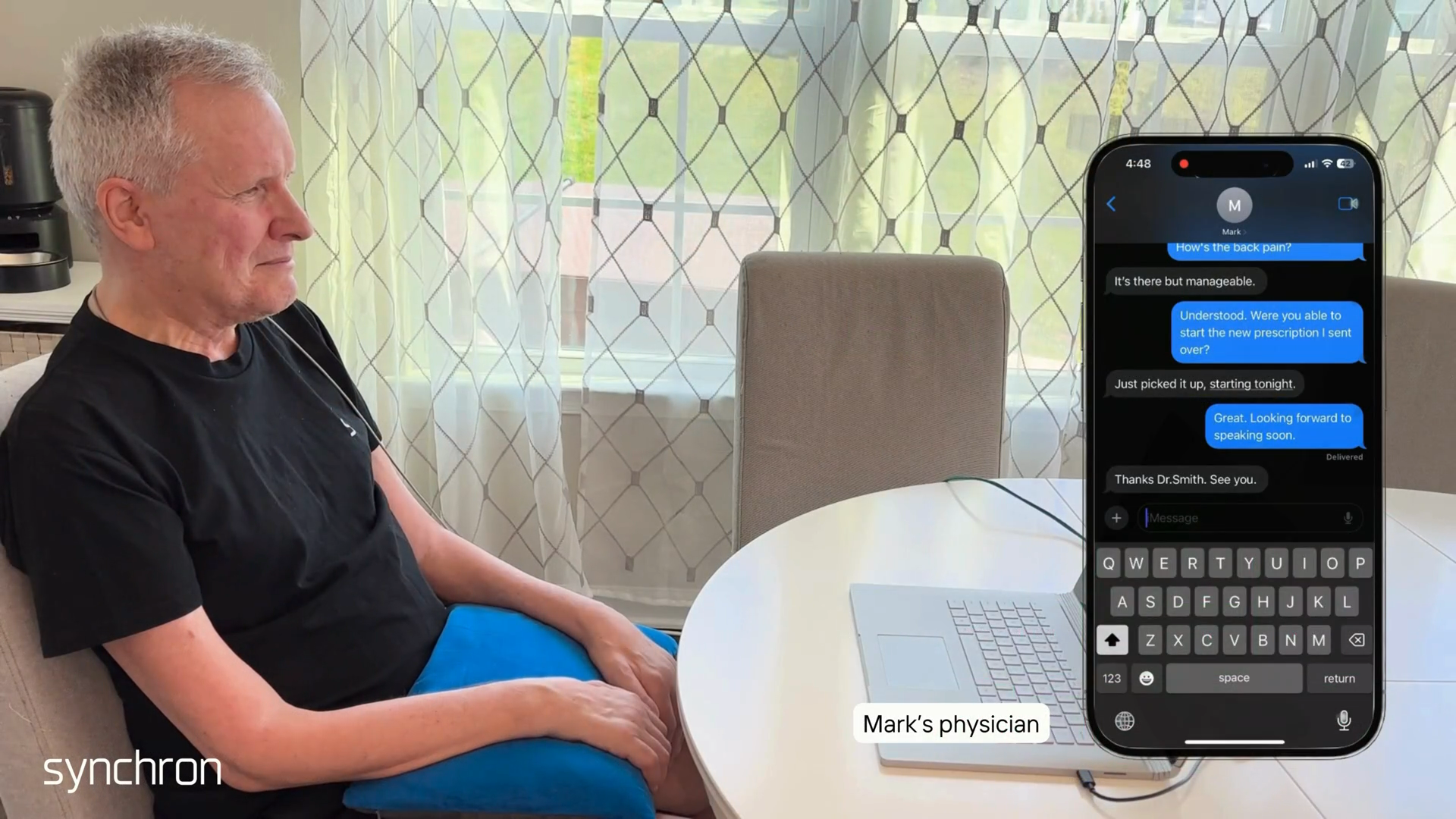Synchron Integrates Generative AI with Brain-Computer Interface Software
US-based brain-computer interface (BCI) company Synchron has integrated generative AI into its brain implant interface system, enhancing the ability of non-verbal individuals to generate text and audio using their thoughts alone. This update aims to improve communication for people living with conditions such as amyotrophic lateral sclerosis (ALS).
The new feature utilizes OpenAI’s multimodal generative pre-training transformer (GPT) to power Synchron’s BCI chat functionality. This integration enables users to produce automated prompts for texting and chatting, categorized by contextual inputs, including emotional states. The technology promises faster and more intuitive text generation on a screen, aligning with the speed of normal human conversation.

Syncron demo
Synchron’s BCI is designed to aid individuals with severe disabilities by allowing them to communicate more effectively. The device is implanted in a blood vessel on the surface of the motor cortex of the brain through a minimally invasive procedure. It transmits brain signals wirelessly to a desktop device, which then interprets these signals to generate the desired text or audio output.
Importantly, Synchron ensures that user-generated inputs will not be directly shared or stored with OpenAI, maintaining user privacy and data security.
Topics: NeuroTech